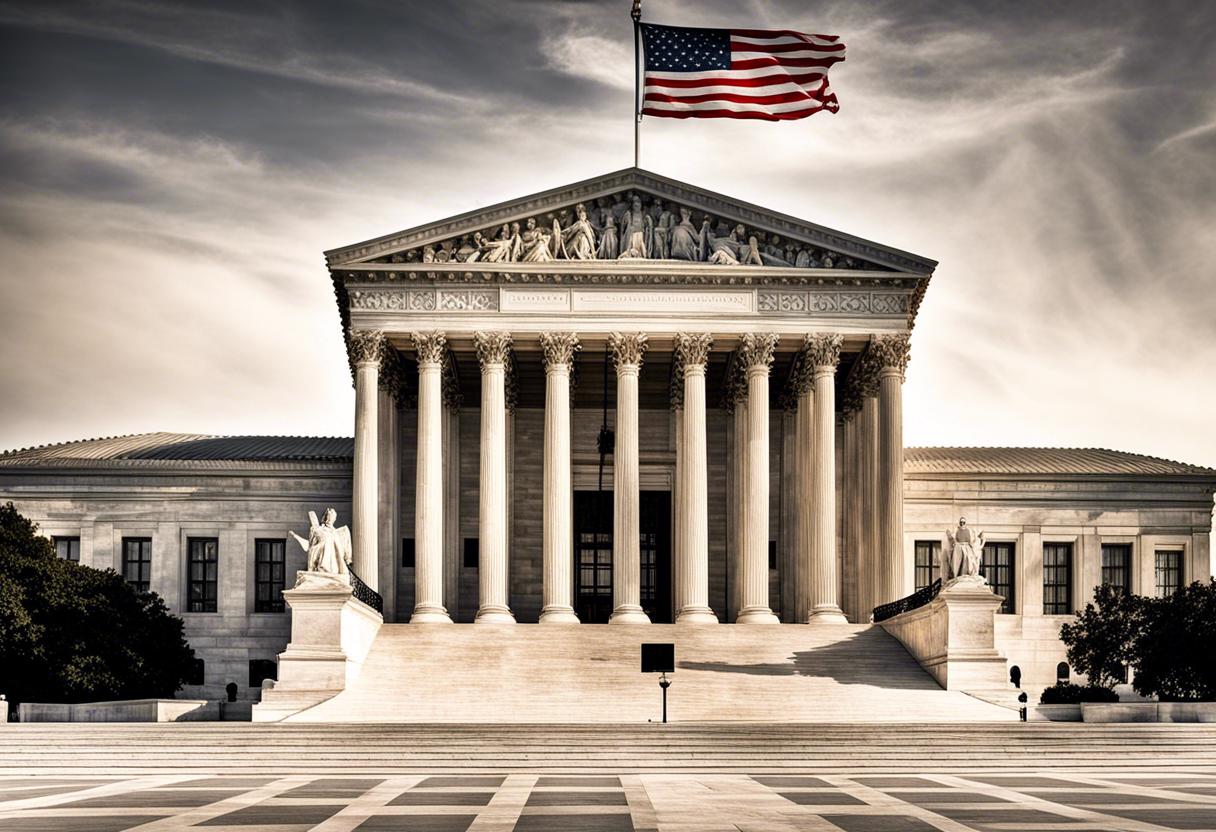The question of how far the immunity of a US president extends in relation to criminal prosecution became a focused topic of discussion for the US supreme court on Thursday, as allegations of interference in the 2020 elections are being levelled against Donald Trump. Aspects pertaining to both the professional and personal conduct of a president were probed during the deliberations, with a suggestion hinting that a more detailed examination of Mr Trump’s conduct may require lower courts. A potential consequence of this could be yet another postponement of one of the most critical criminal trials against Mr Trump, who is also the anticipated Republican candidate for the upcoming November elections. A verdict is set to be delivered before the completion of the court’s term, usually around the end of June.
Mr Trump has consistently advocated for an expanded understanding of immunity, asserting that charges can be brought against presidents only if they’ve been previously impeached and formally convicted by Congress for similar crimes – a claim he maintains even for the most extreme scenarios. The court’s final judgement will have implications for his defence strategy and could trigger wide-ranging effects across the US government. This could significantly shape the future dynamics of power and the extent to which presidents are held accountable.
Mr Trump’s lawyer, John Sauer, shared with the court that subjecting a president to prosecution for his professional actions would conflict with the constitutional design, implying that such a development could entirely alter the nature of the presidency. However, he did acknowledge that a president could face criminal allegations for his private actions.
In response, Michael Dreeben, the representative of the justice department, debunked these claims, stating a lack of constitutional support for the kind of massive immunity sought by Mr Trump. He warned of a precedent that could effectively shield former presidents from criminal responsibility for grave crimes including bribery, treason, and murder.
The exact nature of what officially qualifies as a legitimate act also came under scrutiny. Justice Ketanji Brown Jackson questioned this disparity, expressing concern over the idea that a president, being the most influential person, could exploit the office with the knowledge of the absence of criminal penalties.
Questioning the extent of legal protection sought by Mr Trump, the progressive justices of the court voiced their opposition. Elena Kagan, referring to constitutional principles, emphasised that the president is not a sovereign authority and should not be beyond the reach of the law.
Amy Coney Barrett, a Trump-selected member of the court’s conservative sector, appeared notably dubious. She openly questioned Mr Sauer’s assertion that some laws might not be enforceable on the president, asking how he could be prosecuted following impeachment while supposedly being immune from such legal stipulations.
Other justices of a conservative leaning appeared more open to Mr Trump’s perspective. Samuel Alito identified the president as occupying an unusually vulnerable position, while Brett Kavanaugh indicated that presidents should be legally accountable for all personal actions like any other US citizen, with the key query being actions taken in their official role.
Philip Bobbitt, a professor from Columbia Law School, suggested that sufficient votes may exist to send the case back to lower courts with guidance on the immunities applicable to certain actions. However, it’s also probable that a significant minority could argue that a president never possesses the authority to operate outside the law and that immunity doesn’t extend to unofficial actions.
Bobbitt noted that even if the ruling leaned in Trump’s favour, the case would be far from concluded. He also suggested that it’s unlikely the lower court’s ruling would be confirmed, casting doubt on any premature celebrations from the prosecution.
The case being considered by the Supreme Court originates from a federal indictment issued by the Justice Department’s special counsel, Jack Smith, who alleged that Mr Trump attempted to overturn the 2020 election.
Mr Trump has categorised the criminal case, along with three other court case he is presently facing across the US, as politically motivated attacks.
Although the former president expressed a desire to be present at the hearing on Thursday, he was obliged to be present at his trial in Manhattan where he stands accused of falsifying business documentation to hide an extra-marital affair.
This specific case is giving the justices the task of considering a complex element of US law. There is no specific law that grants presidential immunity from criminal charges, and any precedents are minimal. While the Supreme Court has concluded in the past on presidential immunity in civil cases, they have never ruled on its reach in criminal situations.
The Supreme Court recently handed down a decision on another politically charged case involving Mr Trump. Last month, it reversed Colorado’s decision to disqualify the former president from its ballots on the grounds of his perceived role in the US Capitol unrest committed by his supporters on January 6th, 2021.

